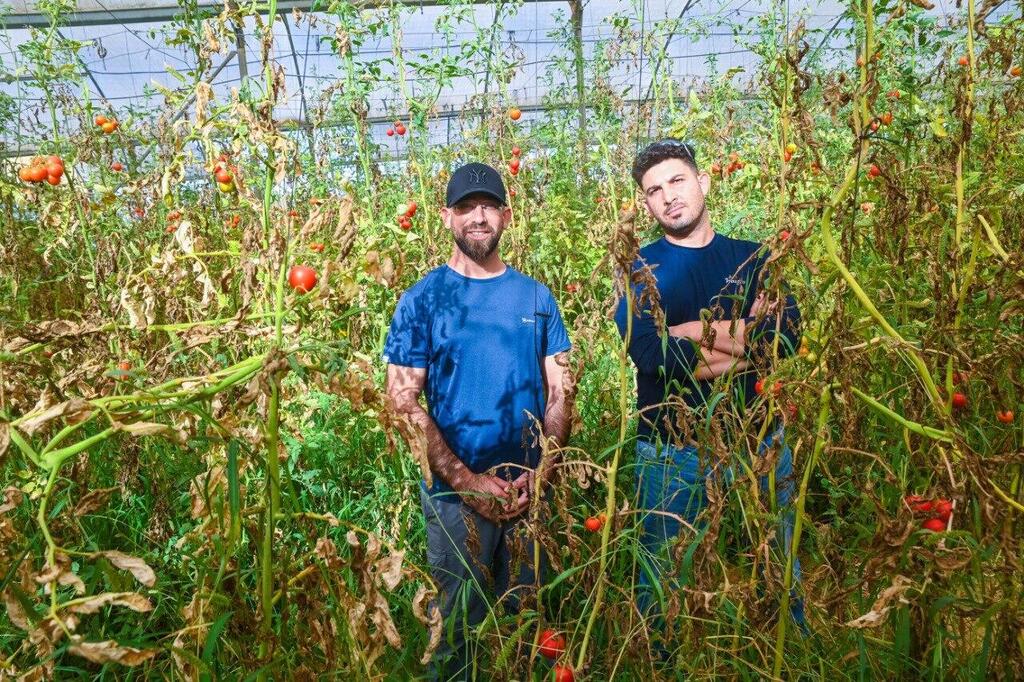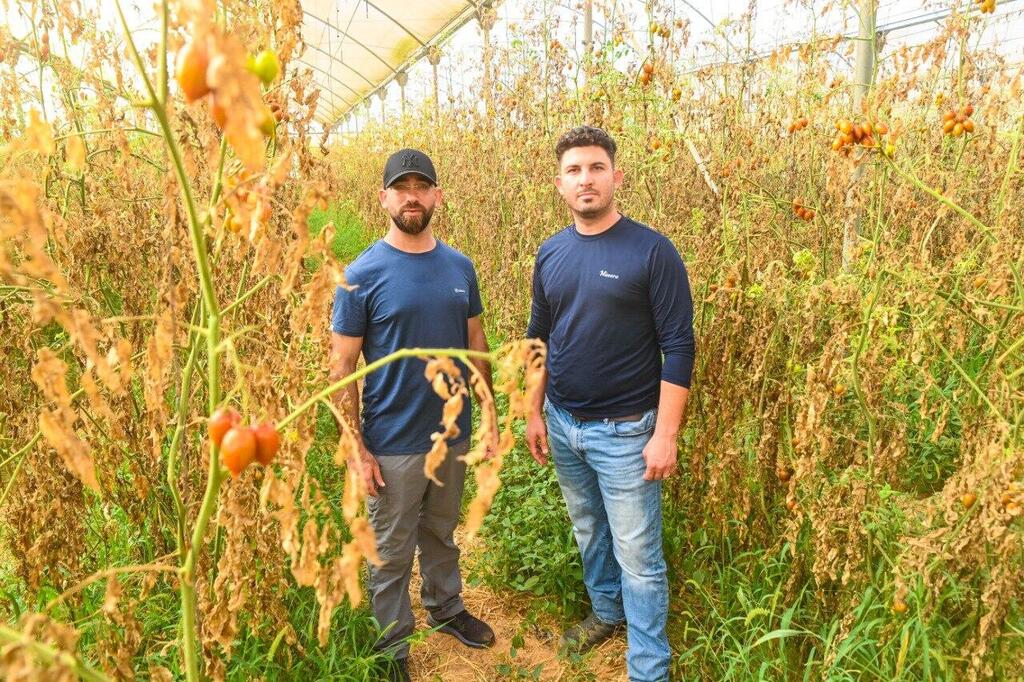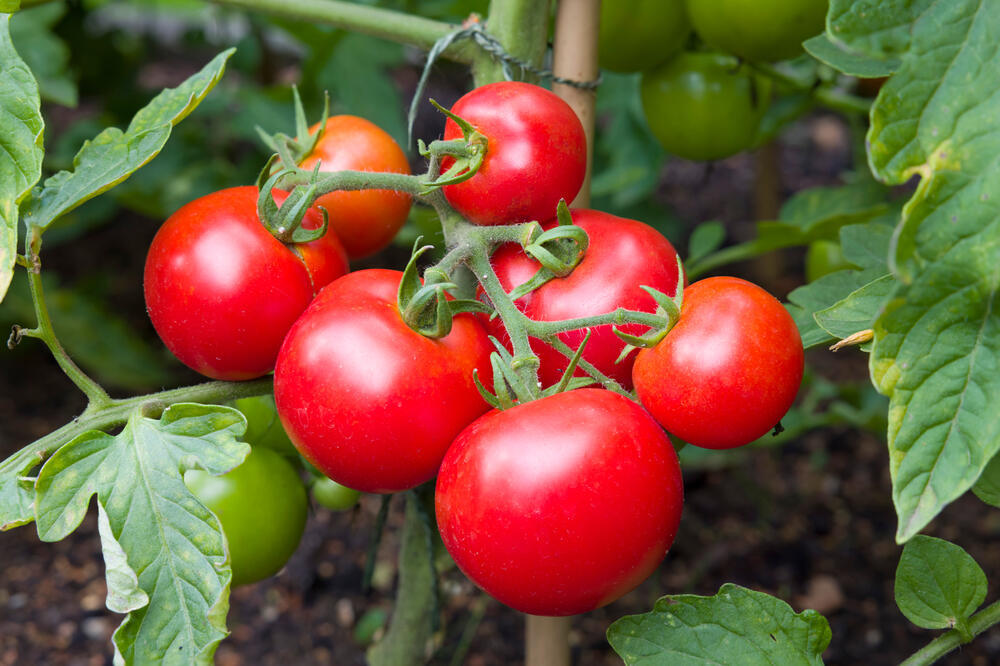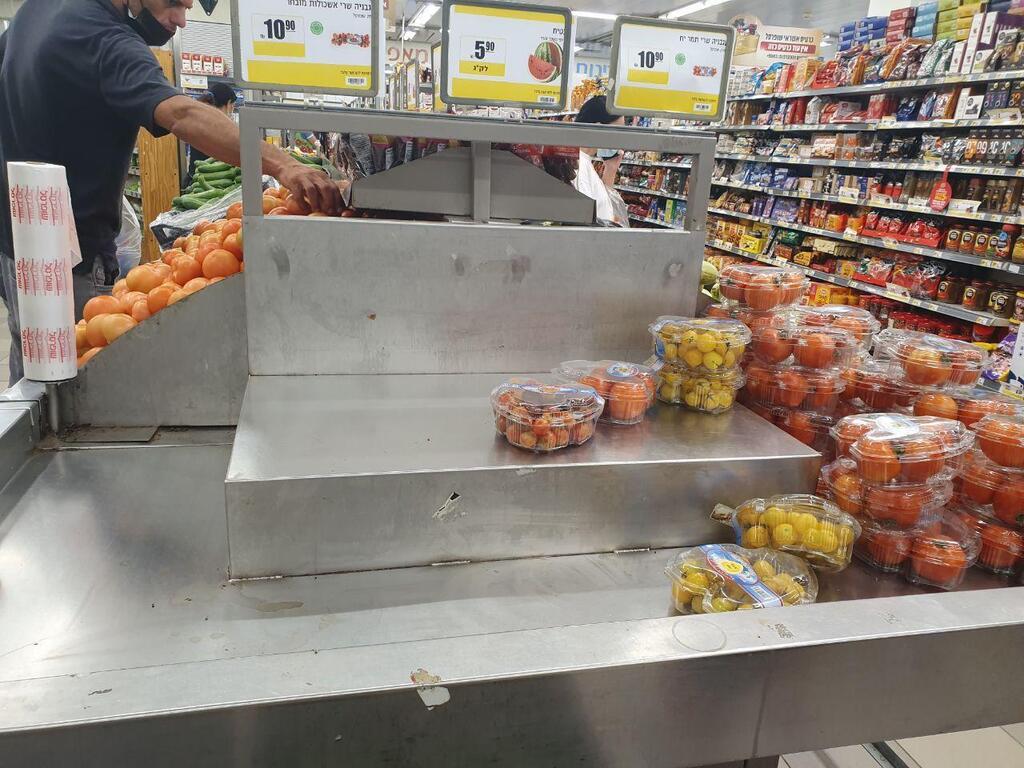In the Eshkol Regional Council, which accounts for 70% of Israel's tomato cultivation, workers are accustomed to dealing with the intense Israeli summer heat. However, this year, especially during the hottest month on record in the past 120,000 years, has caught them off guard. "There are certain hours in the day when it's impossible to stand inside the greenhouse for more than five consecutive minutes," says farmer Haim Lugasi. In addition to the scorching heat, farmers were taken aback when they discovered that the government was intermittently cutting off their water supply without considering the extraordinary conditions.
Read more:
"In recent years, the situation has worsened due to global warming," says Eitan Aharon, from an agricultural community in the south, in an interview with Ynet and its sister publication, Yedioth Ahronoth. "We need more water because temperatures keep climbing. In this heat, without water, many crops burn. If they cut off our water during the hottest hours, resuming its supply in the afternoon or at night makes no difference. The heat this year created a bottleneck in the water supply. Suddenly, one day, they just shut it off."
4 View gallery


Haim Lugasi (left) and Aviram Almog stand near their compromised crops
(Photo: Haim Hornstein)
Aharon says the state tells farmers that they've exceeded their quota, but gives no indication of how the farmers should deal with the situation themselves, leaving crops to die in the sun.
"We lack supply for the market, and the situation will only deteriorate. Planted plots have suffered, with young plants failing to survive and mature ones yielding inadequately. The situation is deeply discouraging; this summer was a complete knockout for us. The state has yet to fully comprehend the consequences of global warming - it seems inevitable that tomato prices will rise ahead of the holidays.", Lugasi says.
In the Ramat Negev Regional Council, which produces about 70% of Israel's cherry tomatoes, farmers are also facing difficulties. but their predicament is caused by a shortage in the labor force.
Local council director Yankaleh Moskovitch says that despite assurances that the quota of foreign laborers will be increased there isn't a single foreign worker currently available in the area. Although last month, the Ministry of Agriculture announced a government decision to expand these quotas, the actual implementation is not expected until 2024. "The government recognizes the severity of the situation, which was lacking in the previous government but we are not expecting to be able to recruit more workers in the next two years. If there was a desire to do so, we could bring in hundreds of workers within a month," he says.
Adi Raz from Kmehin, a Moshav adjacent to the Egyptian border, manages 40 acres of cherry tomatoes, 60 acres of cluster tomatoes, and 20 acres of cucumbers. "There's a significant shortage of skilled labor in agriculture," Raz says. "We aren't cultivating anymore because the government opened up imports. Turkish tomatoes cost less and are subsidized. However, the heatwave in Europe also made an impact. They'll be short of tomatoes, but the government prefers imports that yield profit for Turkish farmers. We can produce all the needed vegetables and fruits. The government just needs to invest in Israeli agriculture and the Negev."
The convergence of developments in the Negev areas and the expected price surge is compelling retail outlets to explore strategies for boosting tomato imports. Nonetheless, there's also another issue at play here.
Professor Aharon Tru'an from the Faculty of Agriculture at the Hebrew University says importing is not a magical fix. "It's merely a band-aid for the global food crisis, overlooking the vital role of agriculture in environmental preservation, sustainability, and the welfare of Israel's population. We are facing an ongoing climate crisis that will continue to affect us significantly, resulting in geopolitical pressures."
In reality, importing tomatoes doesn't necessitate government authorization. It's mainly a matter of tariffs and importers' costs. However, the question of imports requires a long-term vision, as experts have outlined. For instance, in 2022, when the government lifted tariffs on garlic, it triggered the collapse of the Israeli garlic market. Farmers had to dispose of their garlic harvest, and Israeli consumers saved a few shekels.
He cautions against harming Israeli agriculture through further imports. "These actions contribute to the instability of global food systems. In times of crisis, prices rise, competition intensifies, and since Israel and the Middle East are climate hotspots, alternative options for importing fruits and vegetables may become less accessible. We are likely to take a risk if we dry up Israeli agriculture through import strategies lacking foresight or consideration of the future. We would mortgage the future for the sake of the present. This does not constitute a sound strategy."
"The majority of the fresh agricultural imports to the country originate from neighboring nations like Egypt, Jordan, and Turkey," says Eyal Kimchi, an agricultural economics professor at the Hebrew University. "However, we must consider the long-term implications for our local agriculture. Increasing dependence on imports reduces our control and exposes us to risks. A few years ago, the earthquake in Turkey led to a tomato shortage when imports were halted. Striking the right balance is essential. A blend of local production and imports is necessary to diversify risks. We need to preserve a substantial foundation of local agriculture."
"We attempted to adjust the distribution model based on time slots to support the infrastructure's capacity, Oren Levi, the managing director of the Ministry of Agriculture says. "But with more farmers entering the region, the water infrastructure wasn't adequately upgraded. It's a multifaceted problem that will take years to address," he says.
The Ministry of Agriculture claims the responsibility for authorizing foreign laborers lies with the Population and Immigration Authority. "This is a process that requires time, and is not an immediate solution," Levi says. "In addition, we have an agreement to modify regulations including extending the duration of foreign workers' stays to six years. This adjustment will quickly boost the workforce."
The Population and Immigration Authority issued the following message: "We applaud the government's resolution put forth by the Minister of Interior to expand the cap for foreign workers in various sectors, including agriculture. The Population and Immigration Authority is ready to execute the government's directive in coordination with pertinent government ministries, as well as with the nations from which these workers come. Discussions have already been initiated with the source countries, and the progression is underway."
The Ministry of Agriculture said that with the holidays coming up, the situation is being reevaluated in accordance with the proper procedures to maintain an adequate supply of food and they're constantly monitoring changes in the field, and the Israeli Water Authority said they believe that starting next year, in light of upgrading all relevant infrastructure, the supply of water during critical times of the day will receive a notable boost.




